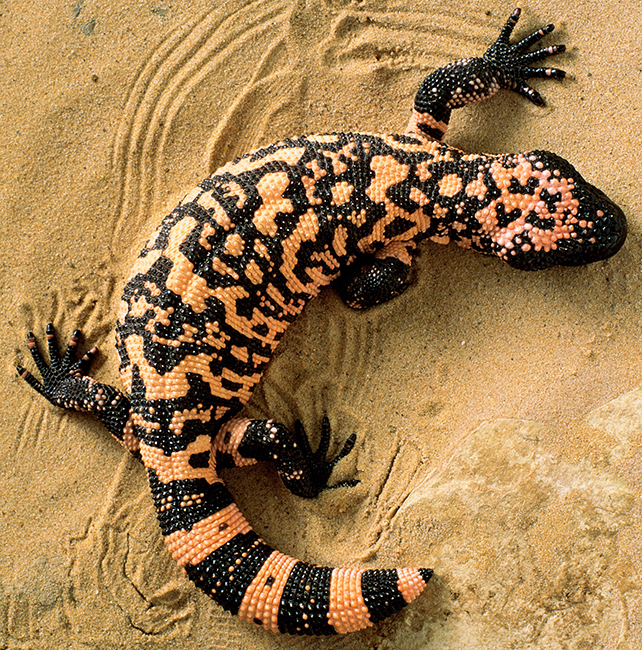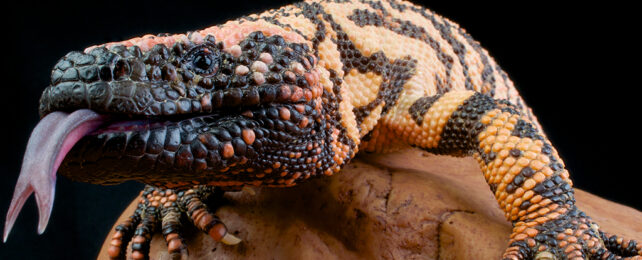A juvenile Gila monster named Winston is a key suspect in the death of his owner, who is currently suspected of having had a sensitivity to the lizard's toxic saliva.
The Colorado man passed away on 16 February just four days after being bitten by the reptile, potentially becoming just the second person in the past century to have died as a result of Gila monster (Heloderma suspectum) venom.
"That's a very unusual consequence of a Gila monster bite," University of Northern Colorado biologist Stephen Mackessy told CBS news reporter Brian Maass.
Gila (pronounced hee-la) monsters are half-meter-long (about 20 inches) lizards native to the US's Southwest and Mexican state of Sonora. With a distinctive bumpy texture, blotchy black-and-orange skin, and a personality that is more mouse than monster, the lizard is prized among reptile collectors.

The usually shy Gila does deserve a healthy amount of respect, however, capable of delivering a nasty nip with its grooved teeth, which opens the way for a cocktail of flesh-destroying enzymes to dribble in.
Though there's no antivenom, bites rarely do more than deliver a relatively short-lived (but intense) burst of pain, along with swelling, bouts of nausea, and weakness. Not that it's a pleasant experience, by any means.
"It's like getting your hand slammed, caught in a car door," Arizona State University veterinarian Dale DeNardo told Associated Press journalist Mead Gruver.
"Even that initial pain is extended for an hour. Then you get the typical days of soreness, throbbing pain. It's much worse than any bee, wasp or scorpion."
There are just over half a dozen deaths attributed to a Gila monster bite on record, yet with the reliability of all but one of the claims heavily disputed, it's impossible to draw any strong conclusions on the nature of the fatalities or whether they're even related to the snake's venom at all.
Even in this particular case, connections between the bite and the cause of death are purely speculative.
The Jefferson County resident, 34-year-old Christopher Ward, was reportedly bitten on the hand by one of his two unlicensed Gila monsters, Winston and Potato. According to his girlfriend, Ward began vomiting and struggling to breathe within minutes of the bite.
In spite of being rushed to hospital and placed on life support, the victim tragically died less than four days later.
Though it's illegal to own Gila monsters in Colorado without a license, state authorities admit illegal sales happen from "time to time". Experts are citing the event in cautioning people to take extra care in handling the reptiles.
The lizards have been taken for care at a reptile sanctuary in South Dakota, with samples of Winston's saliva being tested further for signs of unique qualities that might provide new details for the case. In the meantime, Ward's death is being attributed to a sensitivity to the reptile's venom.
As destructive as the Gila monster's venom is, some of its contents have inspired the development of novel pharmaceuticals. A peptide called exendin-4 activates a class of receptor found on cells in the brain and pancreas that enhances insulin secretion. In the hands of biochemists, exendin-4 was modified into semaglutide; a drug now sold as a diabetes drug-turned weight-loss therapy under brands like Wegovy and Ozempic.
